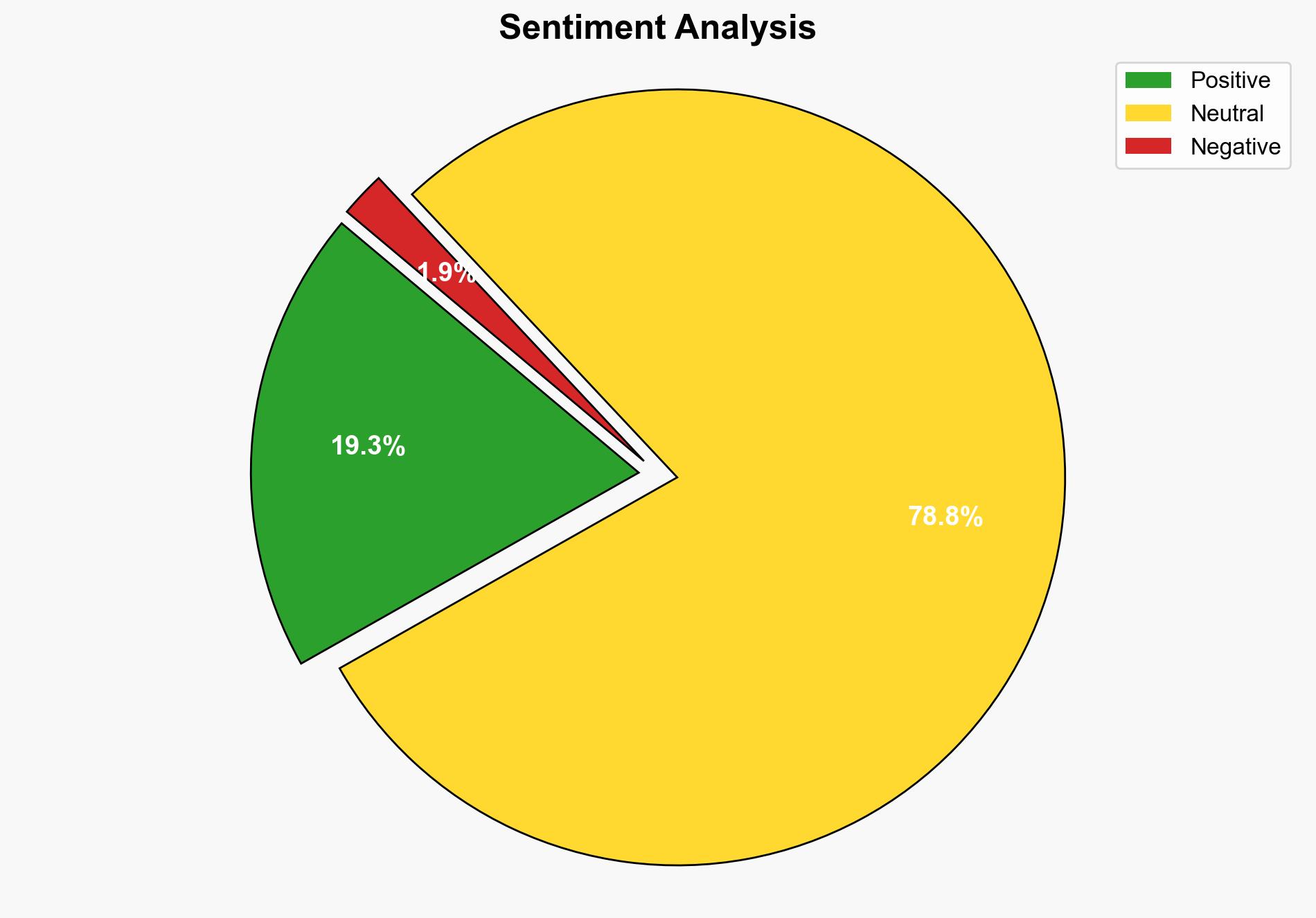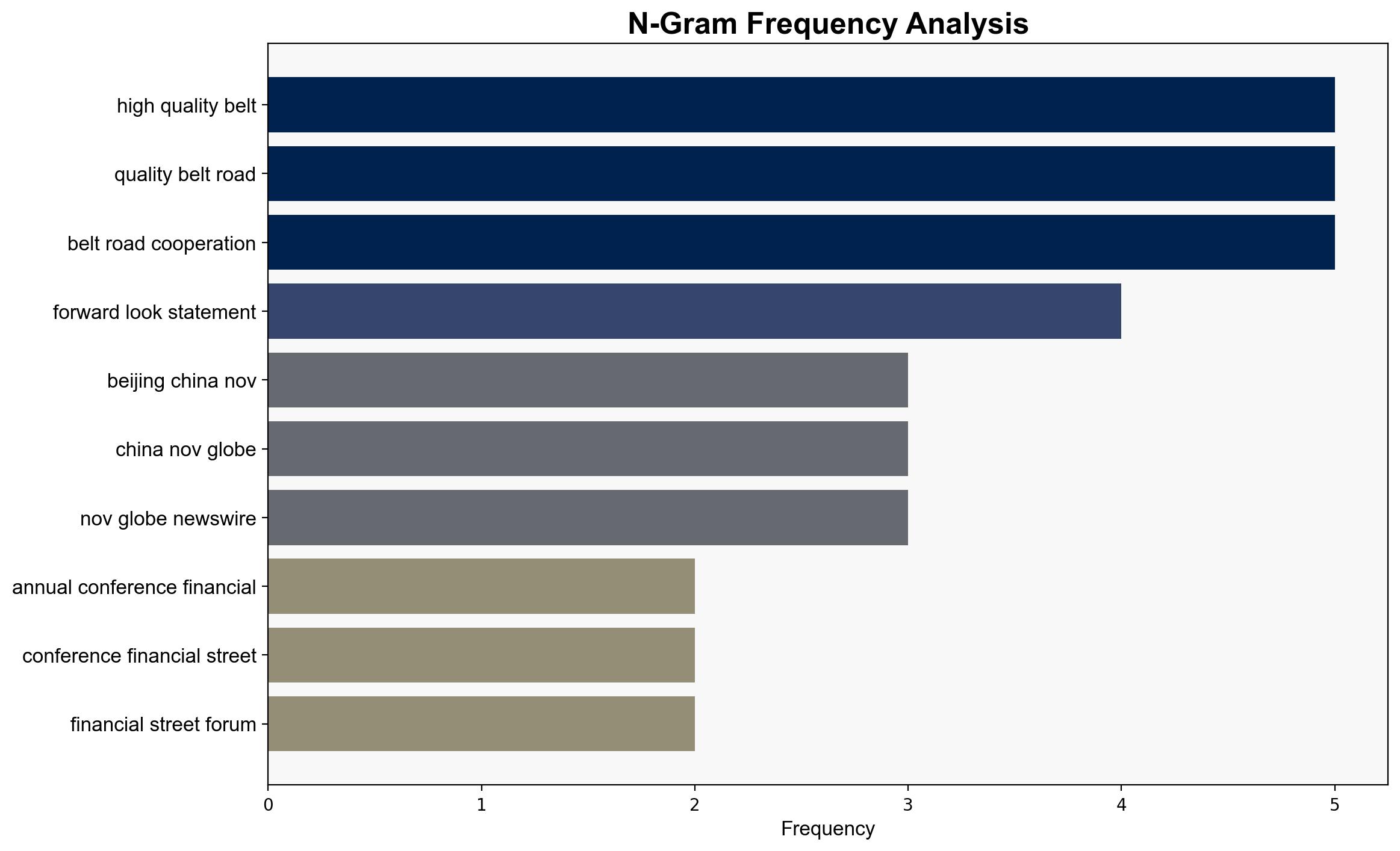Global Times Financial cooperation deepened for high-quality Belt and Road projects – GlobeNewswire
Published on: 2025-11-02
Intelligence Report: Global Times Financial cooperation deepened for high-quality Belt and Road projects – GlobeNewswire
1. BLUF (Bottom Line Up Front)
The Belt and Road Initiative (BRI) continues to expand its financial cooperation, with China Eximbank playing a pivotal role in securing partnerships with international financial institutions and foreign enterprises. The most supported hypothesis is that China is strategically leveraging the BRI to enhance its global influence through economic means. Confidence level: Moderate. Recommended action: Monitor further developments in BRI projects and assess their impact on global economic dynamics and geopolitical alignments.
2. Competing Hypotheses
1. **Hypothesis A**: The BRI is primarily a tool for China to expand its geopolitical influence by creating economic dependencies through infrastructure investments and financial cooperation.
2. **Hypothesis B**: The BRI is a genuine effort by China to foster global economic development and connectivity, with mutual benefits for participating countries.
Using the Analysis of Competing Hypotheses (ACH) 2.0, Hypothesis A is better supported due to the strategic nature of the partnerships and the focus on high-quality projects that align with China’s long-term economic and political interests.
3. Key Assumptions and Red Flags
– **Assumptions**: It is assumed that all parties involved in the BRI have equal influence and benefit equally from the agreements. This may overlook China’s dominant role.
– **Red Flags**: The absence of specific details on the terms of agreements and the lack of transparency in project execution could indicate potential imbalances in benefits.
– **Cognitive Bias**: There may be a confirmation bias in interpreting BRI activities as purely strategic rather than developmental.
4. Implications and Strategic Risks
– **Economic**: Increased financial cooperation under the BRI could shift global economic power balances, potentially leading to increased economic dependency on China.
– **Geopolitical**: The expansion of the BRI may lead to geopolitical tensions, particularly with countries wary of China’s growing influence.
– **Cyber**: Enhanced digital connectivity projects under the BRI could pose cybersecurity risks if not properly managed.
– **Psychological**: Countries involved in the BRI may face internal political pressure if perceived as overly reliant on Chinese investments.
5. Recommendations and Outlook
- Monitor the implementation of BRI projects for transparency and equitable benefit distribution.
- Encourage diversification of partnerships for countries involved in the BRI to mitigate dependency risks.
- Scenario Projections:
- Best: BRI projects lead to balanced economic growth and improved global connectivity.
- Worst: Economic dependencies lead to geopolitical tensions and regional instability.
- Most Likely: Continued expansion of BRI with mixed outcomes for participating countries.
6. Key Individuals and Entities
– Chen Huaiyu, Chairman of China Eximbank
– Dilma Rousseff, President of the New Development Bank
– Abdelkader El Ansari, Moroccan Ambassador to China
– YB Lim Hui Ying, Deputy Minister of Finance, Malaysia
7. Thematic Tags
national security threats, economic influence, geopolitical strategy, regional focus





